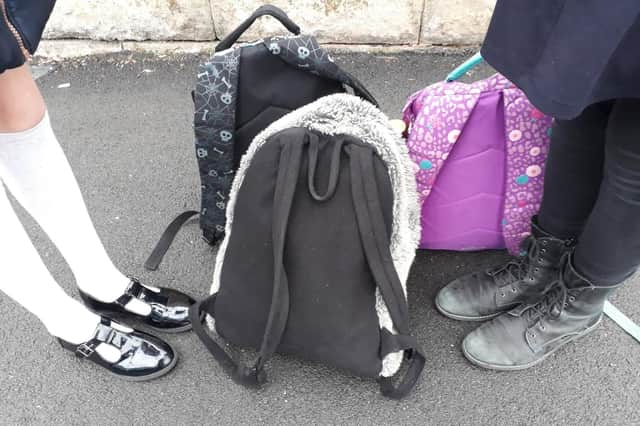Third of Sheffield children living in poverty as Joseph Rowntree Foundation warns hardship is deepening
and live on Freeview channel 276
Sheffield has one of the highest child poverty rates in the region, new figures from the Joseph Rowntree Foundation show, as the charity warns the poverty line is deepening.
According to the charity, 33 per cent of Sheffield children are living in poverty, making Sheffield the authority with the fourth-highest child poverty rate in Yorkshire and the Humber.


Advertisement
Hide AdAdvertisement
Hide AdThe figures have been released today (Tuesday, January 23, 2024), as part of the Joseph Rowntree Foundation's (JRF) flagship UK Poverty report.
In Yorkshire and the Humber, the regional poverty rate is 23 per cent of and the child poverty rate is 31 per cent.
Within Yorkshire and the Humber, the highest child poverty rate is in Bradford 39 per cent and the lowest in Harrogate 14 per cent. Within England, it has one of the biggest range of child poverty rates between local authorities outside of London.
JRF says their analysis shows the poverty gap, or the amount of money needed to bring the incomes of people in poverty to the poverty line, has grown wider. Six million of the poorest people – those living in very deep poverty – would need on average to more than double their income to move out of poverty.
Advertisement
Hide AdAdvertisement
Hide AdAnalysis of the latest data shows that the average person in poverty has an income 29 per cent below the poverty line, with the gap up from 23 per cent in the mid-1990s. The average income of people in very deep poverty – is 59 per cent below the poverty line.
Speaking as the report was launched, Paul Kissack, Group Chief Executive of the Joseph Rowntree Foundation, said: “It has been almost twenty years and six Prime Ministers since the last prolonged period of falling poverty in the UK. Instead, over the last two decades, we have seen poverty deepen, with more and more families falling further and further below the poverty line.
“Little wonder that the visceral signs of hardship and destitution are all around us – from rocketing use of foodbanks to growing numbers of homeless families. This is social failure at scale. It is a story of both moral and fiscal irresponsibility – an affront to the dignity of those living in hardship, while driving up pressures on public services like the NHS.
“It’s a story which can – and must – change. Governments are not powerless to act, as we have seen throughout our history. One way politicians can take action in the next parliament is to enshrine in law a guarantee that people will always be able to afford the essentials, such as food and household bills, through our benefits system.
Advertisement
Hide AdAdvertisement
Hide Ad“2024 will be a year of choices, and any political party wishing to form a new Government must set out a practical and ambitious plan to turn back the tide on poverty in the UK. That plan – to ensure the dignity and respect of every member of our society – will be essential for achieving any broader ambitions for the country”.
Martin Lewis, Founder of MoneySavingExpert.com & The Money & Mental Health Policy Institute Charity added: “I warned at the start of the energy crisis that I was out of tools to help many on the lowest incomes. Now we have hit the stark reality that 100,000s of people in the UK, even after they’ve had professional help from money charities, are still deficit budgeting – so their income is less than their minimum necessary expenditure. Definitions of poverty are tricky, especially when based on relative incomes, but that smells like a clear indication the problem is getting worse.” “And let’s be plain, once people are in the deepest mire, it’s not a Money Saving Expert you need, its policy makers and regulators to sit up take note and address these deep rooted problems – which is exactly what I hope they do with this Joseph Rowntree Foundation report highlighting the situation and calling for change.”
Comment Guidelines
National World encourages reader discussion on our stories. User feedback, insights and back-and-forth exchanges add a rich layer of context to reporting. Please review our Community Guidelines before commenting.